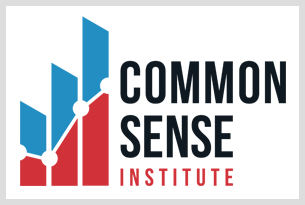FOR IMMEDIATE RELEASE
May 7, 2020
Brown: “…cut services and access to care and/or pass the costs of the CO option to the private plans that remain in the individual and employer-provided insurance markets,”
Denver, CO – Today, Common Sense Policy Roundtable (CSPR) released Modeling the Impacts of Government Price Controls in Health.
Before the COVID-19 pandemic brought the nation to a standstill, Governor Jared Polis and a group of Colorado legislators proposed a new state-controlled health insurance plan, which would first be offered in the individual market and then expand into parts of the employer-provided market. Their proposal would create a Colorado version of the “public option,” a concept which has received significant attention in national politics but has never been implemented at the federal or state level.
CSPR partnered with international consulting firm Navigant, now a Guidehouse Company, to study the potential impacts of the Colorado option plan.
“The bottom line, hospitals would be faced with a choice: Cut services and access to care and/or pass the costs of the Colorado option to the private plans that remain in the individual and employer-provided insurance markets,” said CSPR Director of Policy and Research Chris Brown.
According to the study, even under normal conditions, the revenue losses projected by the actuarial analysis are staggering. “Losses of this magnitude would have a major impact on the delivery of healthcare services in Colorado. However, the current conditions of the Colorado healthcare system are anything but normal right now,” continued Brown.
Brown went on to discuss the less than normal times facing Colorado hospitals, “Battling the COVID-19 outbreak has inflicted severe financial losses on the Colorado hospital system.”
The Colorado Hospital Association reports those losses may reach $3 billion by the end of this year according to more recent reporting. More than 50 hospitals across Colorado, almost two-thirds of hospitals in our state, are now considered financially vulnerable because they have operating margins of below 4%.
As this study was going to press, the sponsors of HB20-1349 announced they would not pursue their bill during the remainder of the 2020 legislative session. Instead, they declared their intention to reintroduce and pass the Colorado option plan during the 2021 session, which begins eight months from now.
“If the backers of the Colorado option plan are planning another legislative push in 2021, it will give them time to expand the scope of their analysis into how their proposal will work, how it will be paid for, how it will impact the state’s healthcare system, and how the broader economy will respond. Getting answers to these questions was critically important while the state was experiencing good economic and fiscal conditions. These questions are even more important in challenging times,” continued Brown.
View the full report here.
Key findings of the CSPR analysis include:
- Roughly 335,000 Coloradans – or 5% of the state’s population – would likely enroll in the Colorado option by 2024. Despite being justified as a necessary proposal for Colorado’s uninsured population, only 18,000 enrollees or 5.3% would join from the ranks of the uninsured. 317,000 enrollees – or 89% of participants – would migrate from existing private insurance plans to the Colorado option plan. Because the Colorado option mandates lower hospital reimbursement rates than the rates private health plans currently provide, the financial ramifications of the state government-controlled plan are significant.
- Hospitals would be faced with a critical choice: CUT services and access to care or PASS the costs of the Colorado option plan to all others.
- Hospitals would face revenue cuts growing from $536 million to $1.1 billion per year over the first three years.
- 4,800 health care workers in the hospital industry could lose their job – that’s roughly 7% of all hospital sector jobs in Colorado.
- Hospitals may be forced to pass along the costs of the Colorado option plan to other consumers. This cost shift could amount to a more than 5% increase in hospital costs for commercial payers who are not in the Colorado option plan.
- This additional cost on employers and workers would create a drag on the state economy, causing a net loss of 6,400 jobs and $619 million in personal income in single year.
- Rural hospitals would be hit harder – Rural hospital’s revenue losses could be up to 6.26%. That is more than double the loss of hospitals in urban areas.
###
Common Sense Policy Roundtable is a non-profit, free enterprise think tank dedicated to the protection and promotion of Colorado’s economy.

